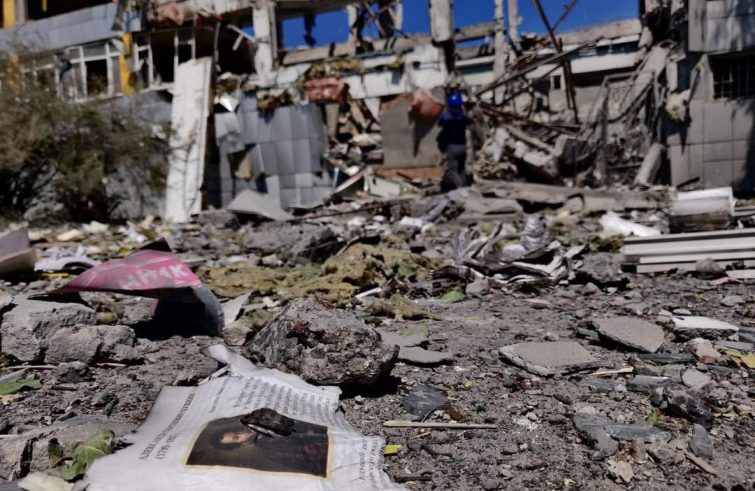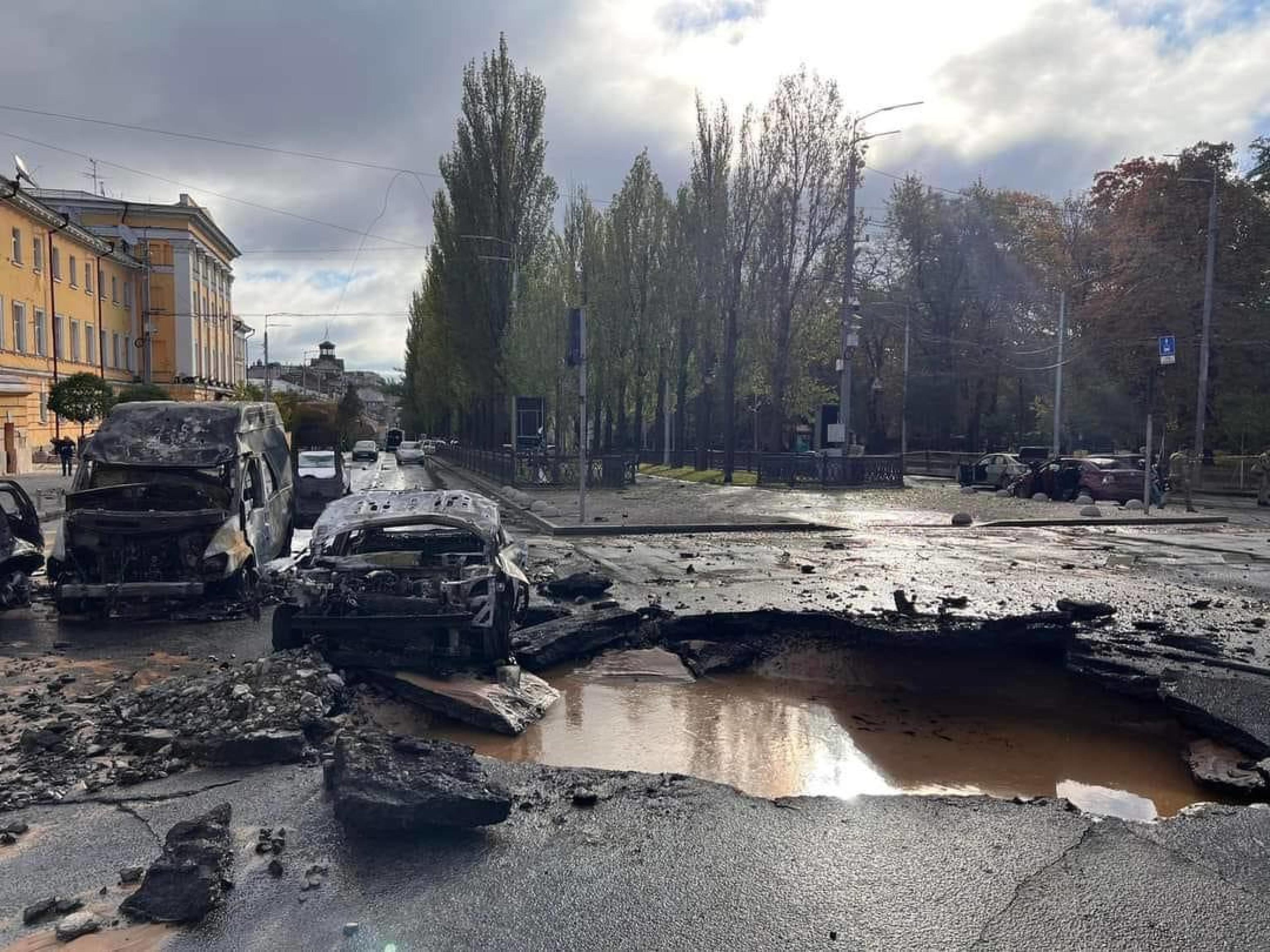
No one is willing to loosen the grip. While Kyiv is carrying out a massive attack to retake the city of Kherson, the two sides continue sending out fiery messages designed to perpetuate a risk strategy. In the opinion of Luciano Bozzo, Professor of International Relations and Strategic Studies at the University of Florence, peace talks and eventual mediations are remote options at the moment.
 Professor, Kyiv announced the beginning of cooperation with Israeli intelligence. This is a major development.
Professor, Kyiv announced the beginning of cooperation with Israeli intelligence. This is a major development.
Israel has to adopt a position of utmost caution for many reasons. Many members of the Jewish diaspora that returned to Israel were originally from Russia and Ukraine, and they clearly have strong ties with their countries of origin. Moreover, the Russian forces are still in Syria, supporting the regime of Bashar al-Assad, siding with Hezbollah. That being the case, Israel has to maintain good relations with Moscow because Russian forces are stationed on its borders. Iran’s support for the Kremlin is definitely worrying, but it is necessary to act with caution because if Israel started supplying sophisticated technologies to the Ukrainians, they might risk falling into Russian hands and ultimately be placed at the service of the Iranians. Israeli foreign policy is extremely pragmatic, and Israel is willing to come to an agreement to defend its national interests. It is precisely because it could play a major role that Israel has every interest in maintaining a neutral position. Indeed, it can’t afford to jeopardize its relations with Russia.
Do you think the Pope could be an intermediary in the negotiations?
I don’t have first-hand information, but I assume that the Holy See’s diplomatic service is working towards the establishment of contacts. I have no idea whether it will succeed. The Russian Church’s position is all too clear and inflexible, markedly different from the Vatican’s stance. This further widens the centuries-old rift between the two Churches. There is also the question of the war on the ground: a Ukrainian offensive is underway to retake the city of Kherson as well as a Russian counter-offensive. Therefore the situation is changing constantly. I think it is unlikely that a peace negotiation will be reached with the Pope’s mediation – or with that of anyone else. In my view, the crux of the matter at the moment is both sides’ reluctance to make concessions. Even Putin expressed his availability to sit at the negotiating table. However, the problem is what Putin wants as a minimum condition and what Zelensky is willing to concede.
Could the conflict come to a halt during the winter?
It could be postponed until next spring. It would not be a solution as it would amount to nothing more than a freezing of the positions that could make it easier to negotiate, which now seems a remote possibility.
 The parties now seem to be engaged in a bitter exchange. What is the truth behind the declarations?
The parties now seem to be engaged in a bitter exchange. What is the truth behind the declarations?
The war has been raging for eight months and has driven both sides to wage even a verbal war against each other. This is a risk manipulation strategy. These bombastic statements are aimed at impressing the opponent and placing great emphasis on the claims in order to gain an advantage. But it entails a high level of risk. Neither party is willing to give up. A massive offensive is underway near the city of Kherson, which has symbolic value, and everything suggests that the situation the situation is starting to heat up.
Could the conflict come to a halt during the winter?
It could be postponed until next spring. It would not be a solution as it would amount to nothing more than a freezing of the positions that could make it easier to negotiate, which now seems a remote possibility.
The intention is to fan the flames of fear.
Yes, that’s the intention – stressing all the risks and repercussions if the scenario were to become reality. The Russian Federation’s nuclear drills, the United States’ deployment of almost 5,000 troops in Romania, the recurring allegations concerning the use of dirty bombs, are all moves aimed at achieving a result with respect to perception, i.e., the other side’s response.
China says that Russia must become stronger, but it also says that an agreement must be reached with the United States. How should Beijing’s role be interpreted?
China’s position is a complex and delicate one. On the one hand, it forged important relations with the Russian Federation, its major ally right now, and it would not stand idly by should it collapse. At the same time, China wants to preserve the global order and the relative stability that led to its impressive development over the past 40 years. China needs Russia for its agenda that opposes US imperialism, aimed at creating an alternative order. However, China cannot avoid being concerned about an escalation in Ukraine because the risk of a global backlash would seriously jeopardize and nullify its slow progress to equate or outpace the US in the next 20-30 years. It’s a very difficult situation that comes on top of the consolidation of Xi’s authority in the country, confirmed in the last Communist Party Congress.
The White House made known that President Joe Biden would not meet with President Putin at the G20 summit being held in Bali, Indonesia.
I never gave much thought to the possibility of a meeting because I can’t see what the talks could focus on right now. Biden has his internal political challenges: upcoming election with the general public hardly interested in foreign policy issues. Yet there are growing signs of irritation over the situation in Ukraine – notably over US support and its economic, financial and military commitments. While Biden needs to pay attention to signs of dissatisfaction at home, there is no other stance he can take with regard to Russia. Vladimir Putin turned the US’ “unipolar power” into his major enemy. For all the above reasons I consider the possibility of a fruitful meeting between the two leaders to be extremely unlikely.


